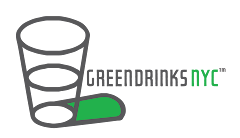Almost as pervasive as parabens is a family of potentially harmful chemicals used in many types of plastics, including children's toys, baby bottles and plastic wrap, called phthalates(pronounced THAlates). According to Johns Hopkins University assistant professor, Rolf Halden PHD, phthalates are plasticizers that are added to plastics to make them more flexible and less brittle. They are synthetic hormones that can interfere with the endocrine systems of humans and animals.
Humans may come in contact with these chemicals when the plastics are heated up. For example, heating breast milk or formula in a plastic bottle, or covering a meal with plastic wrap and then heating it in the microwave, can cause phthalates to leach into the food. Naturally babies and young children are more likely to be affected by endocrine disrupters because they are still developing. It is still unclear as to what level of exposure poses a risk and what the adverse health effects are. The amount of chemicals that leach into food vary, depending on the temperature, the amount of time at that temperature and the type of food. Fattier foods tend to absorb more chemicals.
Based on the evidence, it seems as though, there is no need to panic over any phthlates you may have been already exposed to, however, avoiding them in the future seems simple enough.
Tips:
When using a microwave, always put the food in a glass or ceramic container and do not cover with plastic wrap. Use a paper towel instead. A plain paper towel is best, one without colorful dyes, or bleach.
Heat baby food, milk and formula in glass containers.
Do not leave bottled water in your car or any other place where it may get too warm, as it may cause the plasticizers to leach into your water.
Alternatives:
Bottled Water
Carry and store filtered tap water in a lightweight aluminum container rather than a plastic water bottle.
Plastic Baby Bottles:
The Children's Health Environmental Coalition recommends born free natural baby products. They are available at Whole Foods and Babies R Us.
Choose plastic bottles made with recycling symbols 1,2, or 5. Some Medela and Evenflo bottles are made from these types of plastics.
Saturday, May 12, 2007
Subscribe to:
Post Comments (Atom)

No comments:
Post a Comment